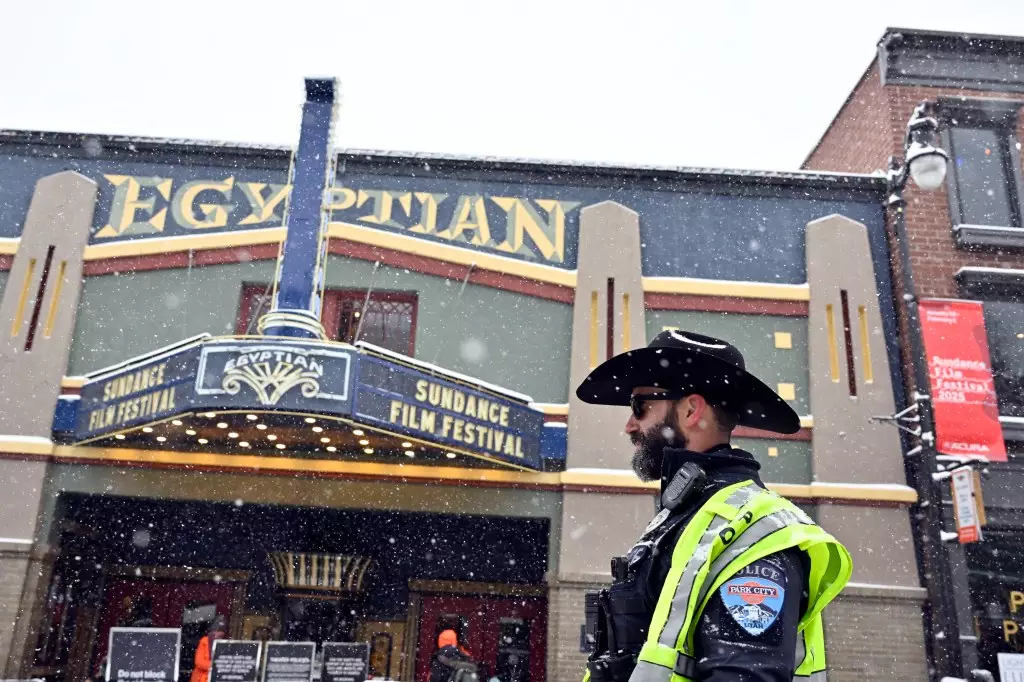In a heated showdown between progressive ideals and conservative legislation, Utah stands on a precipice, teetering between retaining its cultural crown jewel—the Sundance Film Festival—and adhering to a potentially divisive new law. With the clock ticking towards the Governor’s decision on House Bill 77, a bill that aims to restrict the display of the Pride Flag on public buildings, the potential ramifications are enormous. As political winds shift and progressive voices find themselves increasingly marginalized, the stakes for the state economy and its vibrant cultural scene could not be higher. For a state that prides itself on ingenuity and diversity, this legislative maneuver is nothing short of a self-inflicted cultural wound.
A Legacy Under Siege
Sundance has long been more than just a film festival; it embodies an ethos of creativity, freedom, and inclusivity. Founded by Robert Redford, it has drawn thousands to Utah, providing opportunities and revenue that go beyond economic figures. However, the passage of HB 77 reveals an unsettling trend: Utah’s political leadership is leaning toward punitive measures that could alienate the very cultural phenomena that have put the state on the map. Mayor Nann Worel’s comments resonate with a sense of impending loss: “Unfortunately, a recent bill passed by the Utah legislature and comments made by some legislature have not been helpful in our bid to keep the festival here.” This sentiment encapsulates the anguish felt by many who have fought tirelessly to reintegrate Sundance into the community’s identity.
Economic Implications of a Cultural Retreat
The financial ramifications of losing Sundance aren’t just theoretical; they’re raw and palpable. With cities like Boulder, CO, and Cincinnati, OH, eyeing the festival’s relocation with attractive financial packages, the pressure is mounting. An estimated $34 million in tax incentives looms over Utah like a specter, suggesting that while state officials scramble to offer competitive deals, the legislative environment they control could effectively erode efforts to retain the festival in its original home. As Sundance faces its decision-making moment, the competition appears more enticing, emphasizing the paradox that a state rich in natural beauty and community spirit can, through its political decisions, jeopardize its own future prosperity.
The Cost of Discrimination
What is truly alarming about the bill is not merely its potential effects on Sundance but what it signifies: an endorsement of intolerance. Proponents of HB 77 might argue that it decorates public spaces in line with ‘traditional values,’ but in reality, it sends a chilling message to the LGBTQ+ community and its allies. The overt hostility toward inclusivity may not only deter festivals like Sundance from reconvening in Utah but could also lead to broader boycotts across various sectors reliant on tourism and creativity. As Utah’s leadership wrestles with the implications of their actions, one must wonder if the fleeting satisfaction of enforcing this bill is worth the long-term consequences that could empty Utah of its cultural vibrance.
A Call for Leadership and Change
Amidst the chaos, we see the voices of community leaders like Mayor Worel striving to forge an inclusive path forward. Worel’s advocacy for the state’s potential to combine the unique attributes of Park City with the affordable locales of Salt Lake suggests a vision that marries innovation with tradition. However, the real question remains—will the current political establishment heed the calls for change? With still time left for Governor Spencer Cox to veto the bill, there is a flicker of hope among progressives and creatives that reason might prevail. Yet, one cannot ignore the unsettling reality that actions taken today may reshape the cultural landscape for generations to come.
Understanding the Cultural Echo Chamber
The implications of the anti-Pride legislation resonate far beyond the immediate concerns surrounding Sundance. Utah is in an echo chamber where progressive voices must compete fiercely against a tide of regressive legislation. While local leaders push back against this hardline approach, the real battle lies in resonating with the actual experiences of those affected—namely, artists, creators, and the LGBTQ+ community, who represent the heart and soul of what makes Sundance exceptional. The ongoing conversation about inclusivity and representation must remain front and center as Utah moves further into uncharted political waters.
In closing, the interlinking tales of Sundance and House Bill 77 depict a critical juncture for Utah. As the state wrestles with its cultural identity in the face of regressive legislation, the choices made in the coming days could echo through the state’s future for years to come.


Leave a Reply